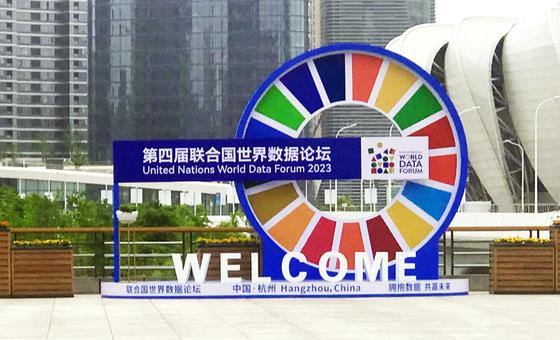
“Three years ago, we launched the United Nations Data Strategy to build more data expertise across the UN System and create more innovative ecosystems that unlock the full potential of data for the betterment of people and planet alike.” said the secretary-general.
In a video message to the opening of the UN World Data Forum in Hangzhou, China on Monday, he warned that progress towards the Sustainable Development Goals (SDG) has stalled, or even reversed, halfway to the 2030 deadline.
He said the Forum was “a key opportunity to turbocharge the transformative power of data and accelerate progress at this critical moment.”
About the Forum
With most of the Sustainable Development Goals (SDGs) still well out of reach, over 2,000 data experts from 140 countries are gathering in Hangzhou and almost 20,000 others will participate virtually.
The fourth of its kind and the first to be held in the Asia-Pacific region, the 2023 UN World Data Forum will bring together major data producers and users of data from science agencies, policymakers, business, civil society and scientific institutions, to discuss initiatives that aim to deliver better data on health, education, climate, natural resources, gender, human rights, refugees and other aspects of sustainable development.
High-level plenaries of the Forum will address the value of data for better policymaking; innovation for timely and broader disaggregated data; public transparency and rights to privacy; difficulties in establishing partnerships across different data ecosystems; and international digital infrastructure development.
Four key themes:
The 2023 UN World Data Forum will focus on core issues related to the following four themes:
- Data provides the insight we need to ensure a sustainable and safer future for all.
- Partnerships and innovation are key to data equality and ensuring that no one is left behind.
- We all have a responsibility to ensure data and statistics are used ethically to protect privacy and data rights.
- Resilient national data ecosystems need support, including sustainable funding, to ensure they are fit for the future, and everyone benefits.


